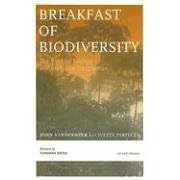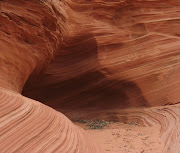 In under forty years, marine life, migrating birds and landlocked wildlife saw reductions of at least 25% of their numbers. Those swimming about in polluted oceans and other water basins saw the biggest loss of marine life from 1995 -2005. Losing that much biodiversity across so many species in such a short time underscores the rapidity to which humankind is watching the decomposition of current standards of living and erosion of the quality of life for animal and human alike. Pollution, animal survival of the fittest from predators not indigenous to certain regions, human expansion, profit exploitation from over development, overfishing or over-hunting, erosion of natural habitats plus the pernicious effects of climate change make a bleak picture and a precarious future.
In under forty years, marine life, migrating birds and landlocked wildlife saw reductions of at least 25% of their numbers. Those swimming about in polluted oceans and other water basins saw the biggest loss of marine life from 1995 -2005. Losing that much biodiversity across so many species in such a short time underscores the rapidity to which humankind is watching the decomposition of current standards of living and erosion of the quality of life for animal and human alike. Pollution, animal survival of the fittest from predators not indigenous to certain regions, human expansion, profit exploitation from over development, overfishing or over-hunting, erosion of natural habitats plus the pernicious effects of climate change make a bleak picture and a precarious future.Colin Butfield, Head of Campaigns at WWF-UK, said: "Biodiversity underpins the health of the planet and has a direct impact on all our lives so it is alarming that despite of an increased awareness of environmental issues we continue to see a downtrend trend. However, there are small signs for hope and if government grasps what is left of this rapidly closing window of opportunity, we can begin to reverse this trend and move away from three planet living to a one planet future."
The report said food, clean water, medicines and protection from natural hazards were important in maintaining security and quality of life for people and if they were to be maintained then the species, natural habitats and ecosystems that support them needed to be protected.
"Reduced biodiversity means millions of people face a future where food supplies are more vulnerable to pests and disease and where water is in irregular or short supply," said WWF Director General James Leape.

 Each loss of a hammerhead shark or a critically endangered African antelope or the overconsumption of gourmet swordfish dishes causes a breach in the species survivability as their reproduction rates are not keeping up with their demises. As the populations dwindle and their natural habitats vanish, they become more valuable and more highly sought for procuring a profit. As the world added a billion people, food, housing and fresh water became premium items on the lowest level of Maslow's hierarchy of needs. Bonn, Germany is the host city to this year's discussion from governments and citizens on the UN's Convention of Biodiversity as arrangement are finalized for the Cartagena Protocol.
Each loss of a hammerhead shark or a critically endangered African antelope or the overconsumption of gourmet swordfish dishes causes a breach in the species survivability as their reproduction rates are not keeping up with their demises. As the populations dwindle and their natural habitats vanish, they become more valuable and more highly sought for procuring a profit. As the world added a billion people, food, housing and fresh water became premium items on the lowest level of Maslow's hierarchy of needs. Bonn, Germany is the host city to this year's discussion from governments and citizens on the UN's Convention of Biodiversity as arrangement are finalized for the Cartagena Protocol.Now their is competition for basic natural resources putting the basics and conservation at the forefront of future national security concerns. The cost of food is rising as corn, soy, rice reach unheard of prices in the commodity markets and putting the staples out of reach of many of the poorest on the socio economic ladder that may have been affordable previously. Fresh water is becoming more scarce due to the twin evils of drought and pollution. This creates the incentive to chop down more trees in sensitive ecosystems where birds need to land, sell crops to the highest bidder that is energy related or fish an area that has many more fisherman than it does fish due to the need to bring in sizable catches. That pales knowing the ocean's dead zones fill more each day with nitrogen, asphixiating marine life leaving no future generations of fish. A surplus of Nitrogen in the environment is surpassing the devastation wrought in the atmosphere by carbon emission from fertilizers and other products using the element.
Some scientists see the loss of plants, animals and insects as the start of the sixth great species wipe out in the Earth's history, the last being in the age of the dinosaurs which disappeared 130 million years ago.It is like watching the application of an environmental butterfly effect where the most minute changes may reap catastrophic changes for nature's ecosystems. Increases in temperature decrease habitats in the ocean, drought strikes areas while other suffer deluges such as the tragedy in Myanmar or Burma while birds and insects carry disease across the planet. We're killing our only planet!
The head of Britain's world-renowned Kew Gardens in an interview last month likened biodiversity -- the broad array of plants and animals spread across the planet -- to a planetary health monitor.
"First-aiders always check the ABC -- Airway, Breathing and Circulation -- of a patient to see if anything needs immediate attention," Stephen Hopper said.
"Biodiversity is the ABC of life on the planet -- and it is showing it is in deep trouble," he added.
 Focusing on rain forests comes a book- Breakfast of Biodiversity: The Political Ecology of Rain Forest Destruction from John Vandermeer and Ivette Perfecto, that enriches the topic while providing a sobering analysis of what truly is at stake.
Focusing on rain forests comes a book- Breakfast of Biodiversity: The Political Ecology of Rain Forest Destruction from John Vandermeer and Ivette Perfecto, that enriches the topic while providing a sobering analysis of what truly is at stake.
One of the few times one sees his name on the book jacket means it is in highest praise from Al Gore. The 2007 Nobel Peace Prize laureate proclaims a strong recommend for reading and absorbing the information in Sustaining Life: How Human Life Depends on Biodiversity from the editors Eric Chivian and Aaron Bernstein. It just went on my wish list and it is available 2 June, 2008!












No comments:
Post a Comment